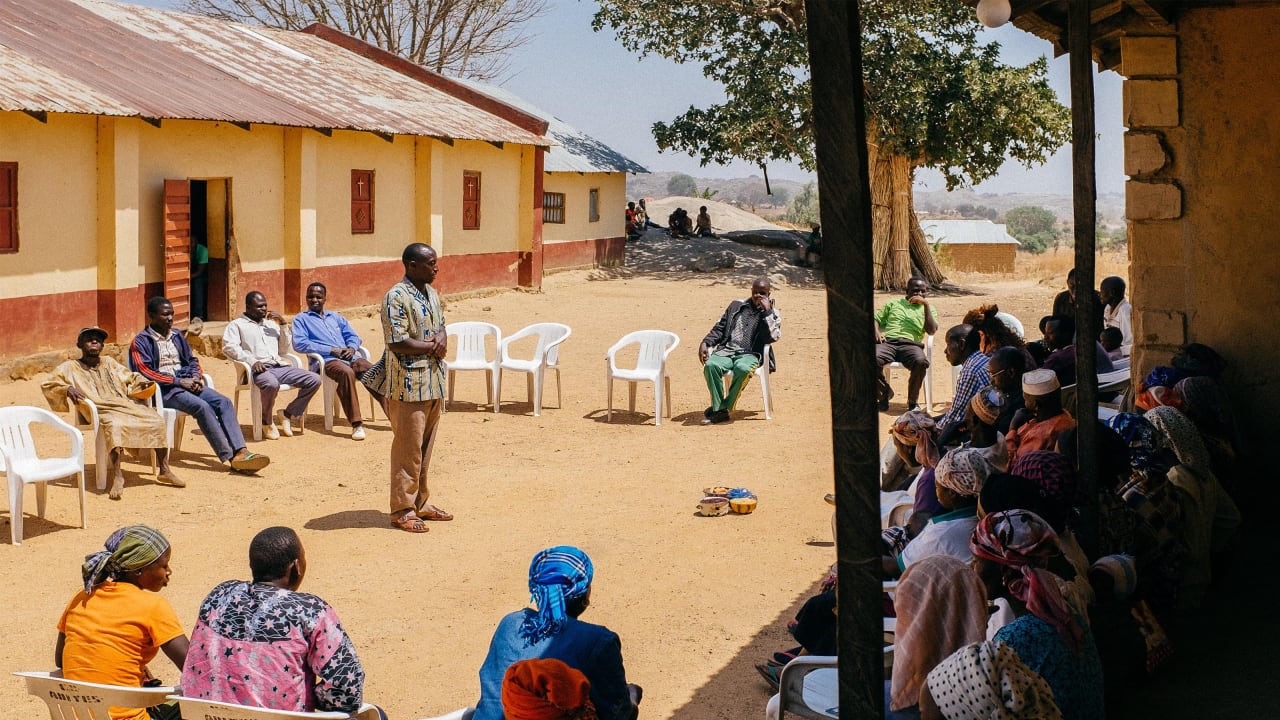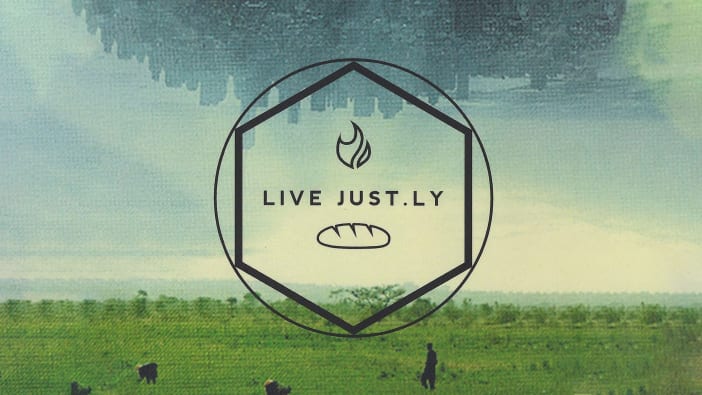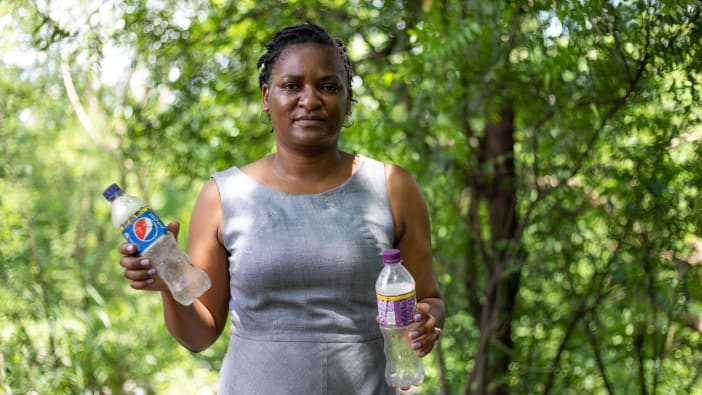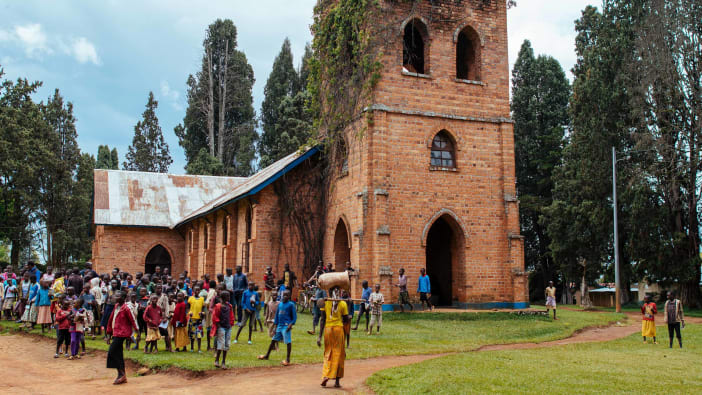Munyaradzi Mataruse: Senior Programme Officer Evangelical Fellowship of Zimbabwe
Social accountability is a development concept that the Evangelical Fellowship of Zimbabwe (EFZ) has been using to promote community development in the last six years. Over the last six years the organisation has implemented Social Accountability in seven of the ten provinces in Zimbabwe. For us what this tool is is really an advocacy tool that we provide to communities that are interested in engaging and exerting accountability at a local level. Since the beginning of 2021, EFZ has received support from Tearfund to integrate social accountability into CCMP sites which are the church and community mobilisation process sites that EFZ has already been working with. Specifically these sites are Esiphezini which is a ward located in Umzingwane district and the second one is Chegutu.
Munyaradzi Mataruse: Senior Programme Officer Evangelical Fellowship of Zimbabwe
Social accountability is a development concept that the Evangelical Fellowship of Zimbabwe (EFZ) has been using to promote community development in the last six years. Over the last six years the organisation has implemented Social Accountability in seven of the ten provinces in Zimbabwe. For us what this tool is is really an advocacy tool that we provide to communities that are interested in engaging and exerting accountability at a local level. Since the beginning of 2021, EFZ has received support from Tearfund to integrate social accountability into CCMP sites which are the church and community mobilisation process sites that EFZ has already been working with. Specifically these sites are Esiphezini which is a ward located in Umzingwane district and the second one is Chegutu.
Esiphezini, Matebeleland South Province
Esiphezini, Matebeleland South Province
EFZ taught us the importance of converging as a community and collaborating with our leadership. Following the training we received, we cascaded the knowledge to all the villages in the ward, hence we have these community champions in our midst. We received education on how to use scorecards. These established the challenges being faced at the clinic among the major issues affecting the ward. In applying the scorecards, we would visit individual households as we carried out interviews in all the villages in the ward. These interviews exposed that of all the challenges the villagers were facing, the clinic was more pressing.
We also learnt not to solely rely on donations to carry out developmental work in the ward. We were encouraged to meet donors halfway by contributing towards projects. Consequently we contributed towards the building of a waiting shelter and maternity room.
Shumirai Nkiwane - Councillor Esiphezini Ward 2
The issues that came from the scorecards were the health facility and the bad state of our roads. As we were still formulating action plans, it emerged that the district council and the District Development Fund began rehabilitating the roads.
We urge one another to desist from pursuing political agendas as we strive to be an apolitical group pursuing only a development agenda. For progress to take place unity must prevail. An elected councillor does not represent his/her political party alone but the community as a whole.
We came together as political leadership, villagers, church leadership and the community champions under the banner of UMOJA (a CCT process).
EFZ makes follow ups on the training they would have imparted. They seek to establish if we are practising what we have been taught. For instance, we were taught on self reliance and to shun donor dependency syndrome. This ensures that we take pride in and ownership of projects we fund.
It’s not a fault finding programme, where you end up fighting and scratching each other but one that will enable you to deal with the important issues in the community so that you are able to improve from where you are. The scorecards are a good tool that will help you come up with good a good solution to your problem.
Chalwe Nyirenda - Social Accountability Advisor Tearfund
As Tearfund we have been doing work around Church and Community Transformation (CCT) advocacy and really trying to see it take root in the communities where Church and Community Mobilisation is happening. To see the type of work the community is doing in Esiphezini was encouraging and also affirming of the belief we have that integrating advocacy into Church and Community Mobilisation Processes (CCMP) yields great results. It does strengthen the outcomes that church and community mobilisation seeks to achieve.
Munyaradzi Mataruse - Senior Programme Officer Evangelical Fellowship of Zimbabwe
Esiphezini is a community that has gone through all the five stages of CCMP, so it is a fully envisioned community. Chegutu is a community that is only beginning CCMP.
Chegutu, Mashonaland West Province
When we started the social accountability champion training, we were sceptical as it felt impossible. However, we gained confidence through follow up training. Our confidence grew when we were positively welcomed by villagers.
We were facing problems in our city without taking action as we didn’t know how to engage the local authorities. However, through the social accountability training I now know where to go.
Munyaradzi Mataruse - Senior Programme Officer Evangelical Fellowship of Zimbabwe
How did we arrive at the social service delivery issues we arrived at as Chegutu community champions and what are they?
We went out into three areas with our scorecards which established that the two main service delivery challenges we faced were erratic water supply and sewer reticulation. We engaged our service provider, the city council which quickly took action by rehabilitating roads. They are also replacing ageing sewer pipes in order to reduce bursts. We are now getting a consistent supply of water from the city council.
It is always scary to do something for the first time, for instance we had to write reports in English and submit them to the authorities. I encourage those who want to implement Social Accountability to be patient and persistent for the betterment of your community.
On another hand we were treated with suspicion as some residents demanded to know which political party we belong to and what our agenda was.
The need to establish constructive relationships is one the key components of Social Accountability, this empowered us to build relationships with the city fathers. They know that as pastors we are not only submitting our problems to them but also praying for them to be blessed with the wisdom to run the council.
Because of the results we have seen over the last 12-18 months we realise that at any point that Social Accountability is introduced or integrated into Church and Community Transformation it would still work, and particularly because it doesn’t deviate significantly from what CCMP seeks to achieve. CCMP on the one side is seeking to empower communities to identify their own problems, identify their own community resources and then use them to try and deal with and respond to their problems. What Social Accountability will do when we integrate it into CCT is then to provide skills to community members to be able to be in the conversation and strengthen it by bringing in the supply side of services. So it’s not just the community responding to their own needs in terms of health or water or roads, but also introducing this conversation to people that have a responsibility of providing these basic social services.









